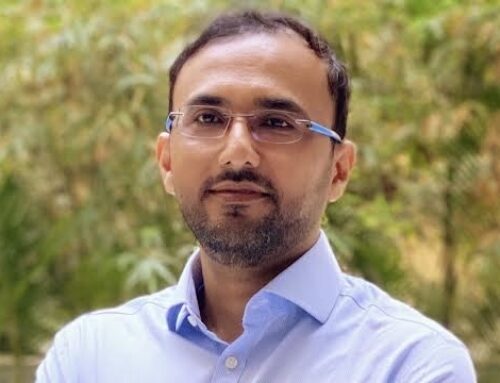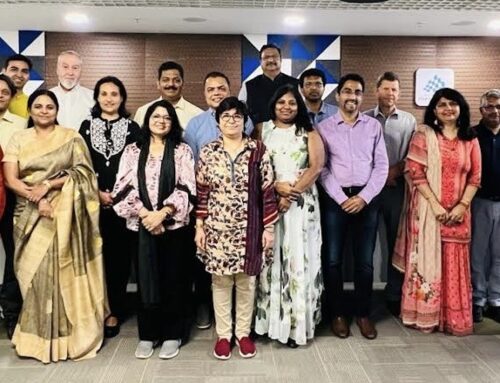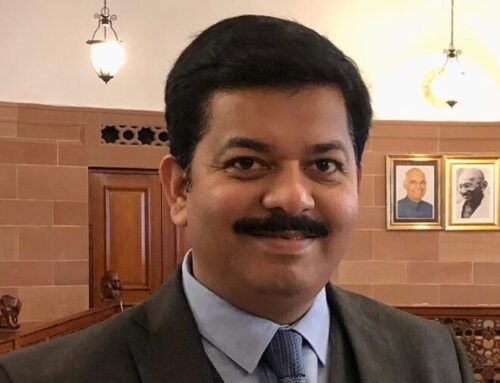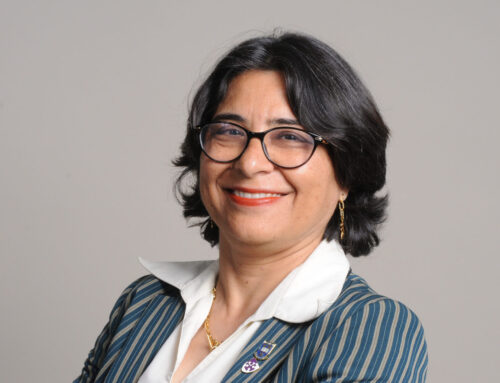John Hoffmire: I met you when you were a scholar in the Chevening Research Science and Innovation Leadership Programme (CRISP) at Oxford in 2016. If I remember right, you were creating a plan for a more effective cruise industry in India at the time. I believe that was the assignment you had taken on for the Government of India. Please catch me up on what you’ve been doing since your time in the CRISP programme.
Basava: You remember right. I have been a career civil servant belonging to the prestigious Indian Administrative Service for over 16 years now. I took time away from this work when I was selected for the Chevening Research Science and Innovation Leadership Programme and to attend the University of California, Berkeley master’s program in Public Affairs and Administration. In fact, I was inspired to pursue a graduate degree in large part due to my time at Oxford in the CRISP programme.
My experience at Oxford revealed to me that public policy is my core strength and I wanted to hone my skills as I pursued my Master’s in Public Affairs. Hence, not long after my time at Oxford, I flew off to participate in the programme at the University of California, Berkeley. After my studies in Berkeley, I was posted in Government of India and I am happy to say that I was instrumental in finalizing the National Education Policy-2020 of India.
John: What was it that drew you to government and your work as a civil servant?
Basava: I like challenges, innovation, and working for people – that’s what releases my adrenaline and keeps me going. Variety, and facing new challenges and opportunities to learn are also very important to me. I knew that I would have plenty of variety and challenges working with the Government of India in various capacities.
John: If you will, give me some examples of the variety of work you’ve been involved with as a civil servant before and since we met.
Basava: I’ll take a long story and make it short. I started as many civil servants do, working in the Indian Postal Service and National Police Academy. I then completed the Civil Services Examination with high marks, which led to a wide range of assignments working as a Chief Development Officer, District Magistrate and Collector, Relief Commissioner to Kedarnath, and so on.
In various capacities I’ve worked in public affairs, project management, environmental impact, civil aviation, tourism, and national education policy. As well, I have been deeply involved in policy-making issues related to the Prevention of Corruption Act. I also got involved in the prevention of money laundering laws. In addition, I’ve executed budget planning and monitored the budget sanctioned by the Central Bureau of Investigation.
Altogether I have worked in five ministries in the Government of India, giving me a broad exposure to the functioning of the government. This has given me all that I asked for in regard to new learning, new challenges, steep learning curves, and problem solving.
John: It’s impressive to hear of all the roles and responsibilities you’ve had over the years. Tell me, what are you working on now?
Basava: I’m currently serving as the Private Secretary to the Union Minister of Education. My responsibilities revolve around policy analysis, policy dialogue, program management, and legislative work. Some of my responsibilities include assisting the Minister in formulating the landmark New National Education Policy of India, National Digital Education Architecture, and National Educational Technology Forum for Ministry of Education. I also facilitate the policy dialogue of the Minister titled “Shiksha Samvad (Town Hall)”, an extensive stakeholder consultation with teachers and students. And I monitor and evaluate the implementation of New Education Policy, 2020 as I developed a tracking mechanism for both higher and school education. These are just a sampling of the various roles and responsibilities I have now.
John: I can see why your career path does seem to suit you well, and vice versa. You do have a wide range of responsibilities and plenty to keep you busy. My last question involves your time in the Chevening Research Science and Innovation Leadership Programme (CRISP) and its impact on your life and career.
Basava: CRISP transformed me in more ways than I could imagine. Transformation happened both physically and mentally. Coming to the physical part, I lost 12 kilos in three months using the excellent sports infrastructure of Oxford. Mentally CRISP gave me an entirely new tool kit to use in my life. The CRISP programme has sown the “entrepreneur” seed in my mind. Though I am finding it difficult to move from civil services to start a new venture, I am hopeful that it will happen soon. The guidance offered by you was especially helpful. Also, the classes on entrepreneurship, social responsibility, and branding, at Said Business School, coordinated by Richard Briant, will stay in my mind forever. The “value for time” I got and reaped from the CRISP programme was enormous.
John: One of the many things I love most about my association with the CRISP programme is all that I have learned from the CRISP scholars. I know the scholars think they are coming to Oxford to learn more about science, innovation, leadership and management, global challenges, politics, and international relations. But you all come and also teach us – the coordinators of different parts of the programme. I’ve learned so much from you and all of the others. Thank you for that.
Basava: I still remember how Richard and you guided me through the beautiful journey of CRISP. Starting from the interview in New Delhi to the farewell that happened in Oxford, you both took great care of us to ensure that proper value was delivered through the programme. You coordinated so well that every second of my stay in Oxford was so enriching. I will never forget my experiences.
Click here to read the entire interview at The Center on Business and Poverty
Basava Purushottam is the Private Secretary to Union Minister of Education, Government of India, and an alum of the Chevening Research Science and Innovation Leadership Programme (CRISP), 2016.
Interviewer: Dr. John Hoffmire is the Chairman of the Center on Business and Poverty, and Research Associate at the Oxford Centre for Mutual and Co-owned Business





